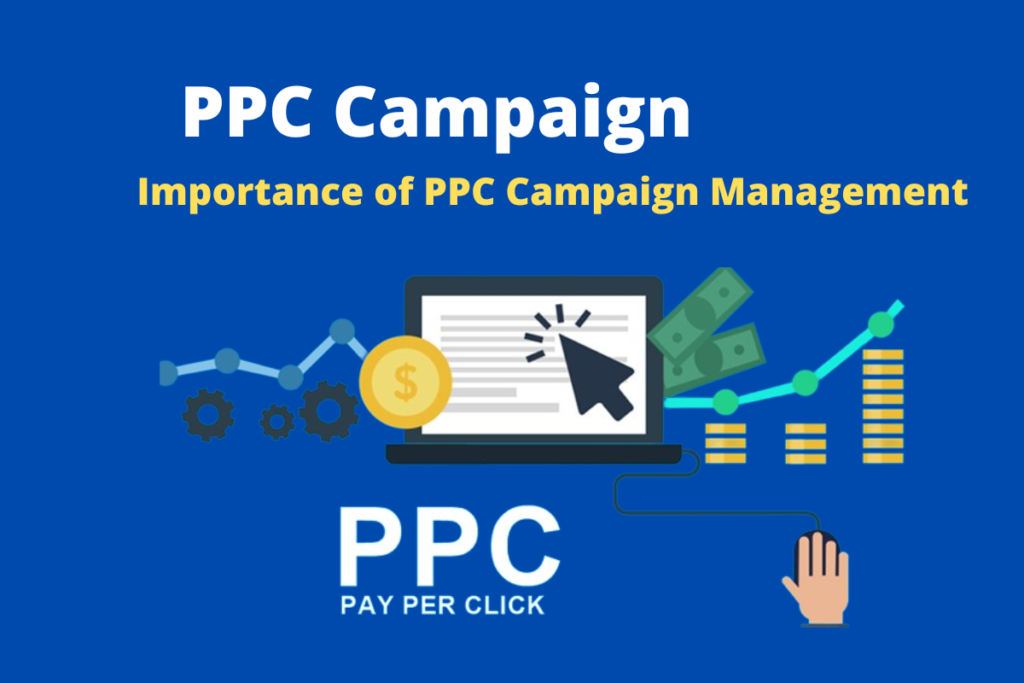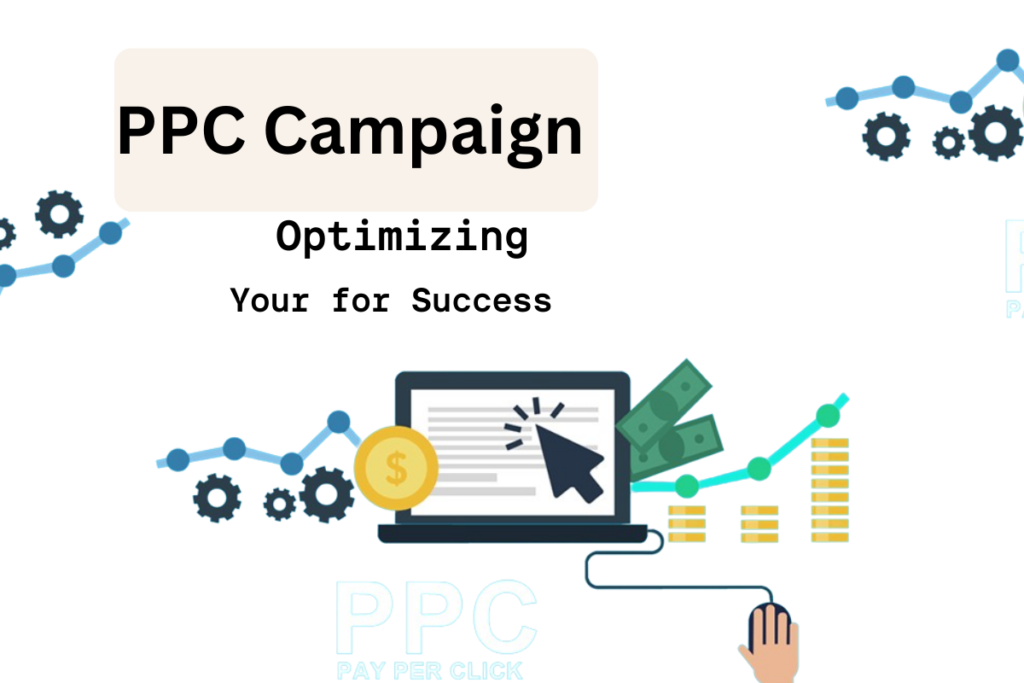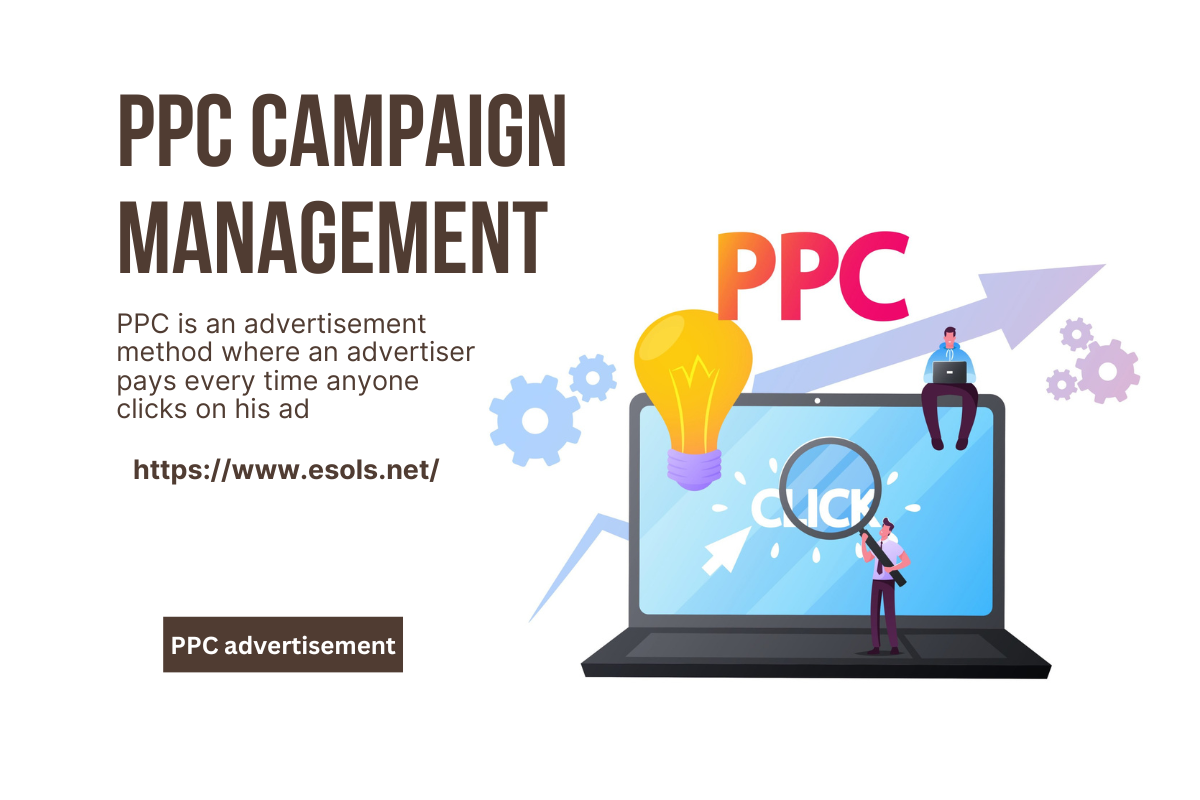In the digital marketing realm, Google PPC Campaign Management is a crucial strategy for businesses aiming to enhance their online visibility, drive targeted traffic, and ultimately boost conversions. This comprehensive approach involves the strategic planning, execution, and optimization of paid advertising campaigns on Google’s platform.
Table of contents
Understanding Google PPC Campaigns
What is PPC?
PPC, or Pay-Per-Click, is an online advertising model where advertisers pay a fee each time their ad is clicked. Essentially, it’s a way of buying visits to your website rather than attempting to earn those visits organically.
Importance of PPC Campaign Management

Google PPC campaigns play a pivotal role in digital marketing due to their ability to target specific audiences, generate immediate results, and provide measurable ROI (Return on Investment). These campaigns allow businesses to reach potential customers at the precise moment they are searching for products or services related to their offerings.
| Aspect | Explanation |
| Targeting Specific Audiences | PPC campaigns enable businesses to target their ads to specific demographics, locations, interests, and behaviors, ensuring that their message reaches the most relevant audience likely to convert into customers. |
| Immediate Results | Unlike organic methods which can take time to gain traction, PPC campaigns yield immediate results. Once the campaign is live, ads are displayed to users searching for relevant keywords, leading to instant visibility and potential clicks and conversions. |
| Measurable ROI | PPC platforms like Google Ads provide detailed analytics and reporting tools, allowing businesses to track the performance of their campaigns in real-time. This enables them to measure their return on investment (ROI) accurately and make data-driven decisions. |
| Precision Timing | PPC ads are displayed to users precisely when they are actively searching for products or services related to what the business offers. This timing ensures that businesses capture potential customers at the moment when they are most likely to make a purchase. |
| Flexibility and Control | PPC campaign management allows businesses to have full control over their ad spend, ad messaging, targeting parameters, and budget allocation. This flexibility enables them to optimize campaigns on the fly and adjust strategies based on performance metrics. |
Setting Up Your Google PPC Campaign

· Creating a Google Ads Account
To embark on a Google PPC campaign management journey the first step is to create a Google Ads account. This involves providing basic information about your business and setting up billing preferences.
· Setting Campaign Goals and Budget
Before ppc campaign management, it’s essential to establish clear objectives and allocate an appropriate budget. Whether your goal is to increase website traffic, generate leads, or drive sales, defining these goals will shape your campaign strategy.
· Keyword Research and Selection
Keyword research is the foundation of a successful PPC campaign. By identifying relevant keywords and phrases that potential customers are searching for, you can ensure your ads appear to the right audience.
Read About: How to do ppc competitor analysis
Structuring Your PPC Campaign

Ad Groups and Ad Copy
Organizing your campaign into ad groups allows for targeted messaging and better performance tracking. Each ad group should focus on a specific product or service, with tailored ad copy that resonates with the audience’s intent.
Landing Page Optimization
Optimizing your landing pages is crucial for converting clicks into leads or sales. A well-designed and user-friendly landing page that aligns with your ad’s messaging can significantly impact conversion rates.
Monitoring and Managing Your Campaign
Tracking Performance Metrics
Regular monitoring of key performance metrics such as click-through rate (CTR), conversion rate, and cost-per-acquisition (CPA) is essential for optimizing campaign performance and maximizing ROI.
Adjusting Bids and Budgets
Continuous refinement of bidding strategies and budget allocation is necessary to ensure your campaign stays within budget while maximizing results.
A/B Testing
Experimenting with different ad creatives, landing page designs, and targeting options through A/B testing can help identify the most effective elements of your campaign.
Optimizing Your PPC Campaign for Success

Google assigns a Quality Score to each keyword in your campaign based on relevance, ad quality, and page experience. Improving your Quality Score can lead to higher ad rankings and lower costs. Utilizing ad extensions such as site links, callouts, and structured snippets can enhance your ad’s visibility.
Quality Score Optimization:
- Understand Google’s criteria: Familiarize yourself with the factors that influence Quality Score, including relevance, ad quality, and landing page experience.
- Keyword relevance: Ensure that your keywords align closely with the ad copy and the landing page content.
- Ad quality improvement: Write compelling ad copy that is relevant to the user’s search query and highlights unique selling points.
Ad Extensions Utilization:
- Site links: Include additional links within your ad to direct users to specific pages on your website, increasing the chances of engagement.
- Callouts: Highlight key benefits or features of your products or services to make your ads more compelling and informative.
- Structured snippets: Provide additional details about your offerings, such as product categories or services offered, to give users a clearer understanding of what you offer.
- Enhanced visibility: Utilizing ad extensions can make your ads more prominent on the search results page, increasing visibility and attracting more clicks.
- Enhanced user experience: Ad extensions provide users with more information upfront, helping them make informed decisions and potentially increasing conversion rates.
Conclusion
Effective Google PPC campaign management requires a strategic approach encompassing thorough planning, meticulous execution, and continuous optimization. Mastering PPC fundamentals and best practices empowers businesses to use Google Ads effectively, driving targeted traffic and achieving marketing goals.
FAQs
The timeline for seeing results from a Google PPC campaign can vary based on factors like campaign setup, competition, and targeting parameters.
PPC (Pay-Per-Click) involves paying for clicks on ads displayed on search engine results pages, while SEO (Search Engine Optimization) focuses on optimizing website content to rank organically in search engine results.
Yes, businesses can run multiple PPC campaigns simultaneously to target different audience segments, promote various products or services, or test different ad creatives and messaging.




